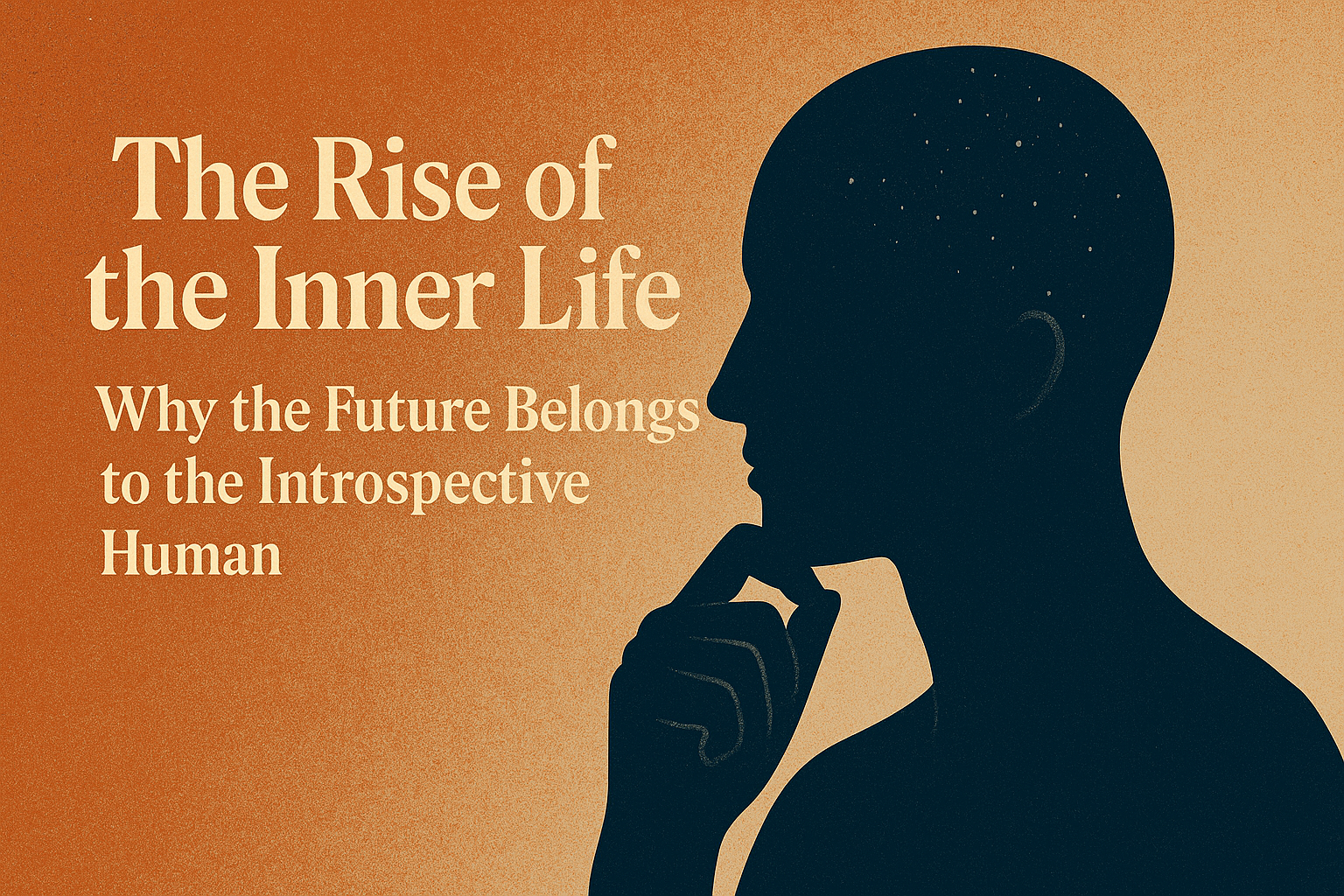“Onye ajụjụ adịghị efu ụzọ.”
– Igbo proverb
(He who asks questions never loses his way.)
In a world increasingly shaped by artificial intelligence, automation, and algorithmic efficiency, it may seem ironic that the most vital skill for the future is not technical but human: introspection.
As machines grow smarter, the question is no longer, “What can AI do?” but rather, “What does it mean to be human?”
The Age of AI and the Quiet Crisis
Artificial intelligence is rewriting the rules of work, communication, and even creativity. Tasks once considered uniquely human — writing, designing, predicting — are now being executed by code. The noise of productivity, the race for speed, and the illusion of constant optimization have never been louder.
Yet amid this external acceleration, there is a quiet crisis: many feel increasingly disconnected — from themselves, from others, and from meaning. The external world is moving faster, but our internal worlds are often neglected.
This is where the introspective human comes in — not as a luddite or a technophobe, but as the one most capable of thriving in an AI-dominated future.
Why the Future Belongs to the Introspective Human
Here’s why introspection is not a luxury, but a core survival skill in the age of AI:
1. Machines Have Intelligence. You Have Insight.
AI can process data at lightning speed. But it can’t experience shame, wrestle with purpose, or sit with sorrow. It cannot ask itself why — only what. Introspection allows us to bridge knowledge and meaning, to transform information into wisdom.
“Uche bu akpa, onye ọ bụla nwere nke ya.”
(The mind is like a bag; everyone has their own.)
2. Clarity Cuts Through Noise
As AI floods us with information, introspective people will be the ones who know what to filter out and what to act on. They are grounded, not reactive. They don’t just follow the latest trends; they understand their core values and act with intention.
3. Self-Knowledge Breeds Adaptability
The ability to reflect, re-center, and reframe is what enables humans to pivot in uncertain times. Those who understand their fears, strengths, and motivations are better equipped to navigate job shifts, reinvent their roles, or even collaborate with AI in creative ways.
4. Emotional Depth is the New Differentiator
AI can write poetry, but it can’t feel longing. It can mimic empathy, but it doesn’t care. The leaders, creators, and connectors of the future will be those who bring depth, authenticity, and presence to a world growing increasingly synthetic.
5. Introspection Fuels Purpose-Driven Action
People who engage in self-reflection are more likely to build meaningful careers, relationships, and projects. They align their actions with values, not just incentives. In a world where many are drifting, introspective humans will lead with anchored purpose.
How to Cultivate an Inner Life in the AI Era
If the future belongs to the introspective, how do we prepare ourselves practically?
a. Create Digital Sabbaths
Carve out regular time without screens, notifications, or devices. In the silence, listen inward.
b. Keep a Reflection Journal
Spend just 10 minutes a day asking: What did I learn today? What moved me? What unsettled me? This builds self-awareness over time.
c. Practice Stillness
Whether through meditation, prayer, or deep breathing, build the muscle of being instead of doing. Insight often comes in stillness.
d. Have Soulful Conversations
Surround yourself with people who challenge you to think deeply and speak honestly. Share fears, hopes, and hard questions.
e. Ask Better Questions
Not just “How can I succeed?” but “Who am I becoming?” and “What truly matters to me?”
A Final Word: Be Human, Radically
The most disruptive thing you can do in the age of AI might just be to be deeply, radically human — to nurture empathy, self-awareness, stillness, and depth.
Machines will know your resume. But only you will know your soul.
And in the end, he who asks questions never loses his way — because he is guided not by trends, but by truth.



One Response
Insightful